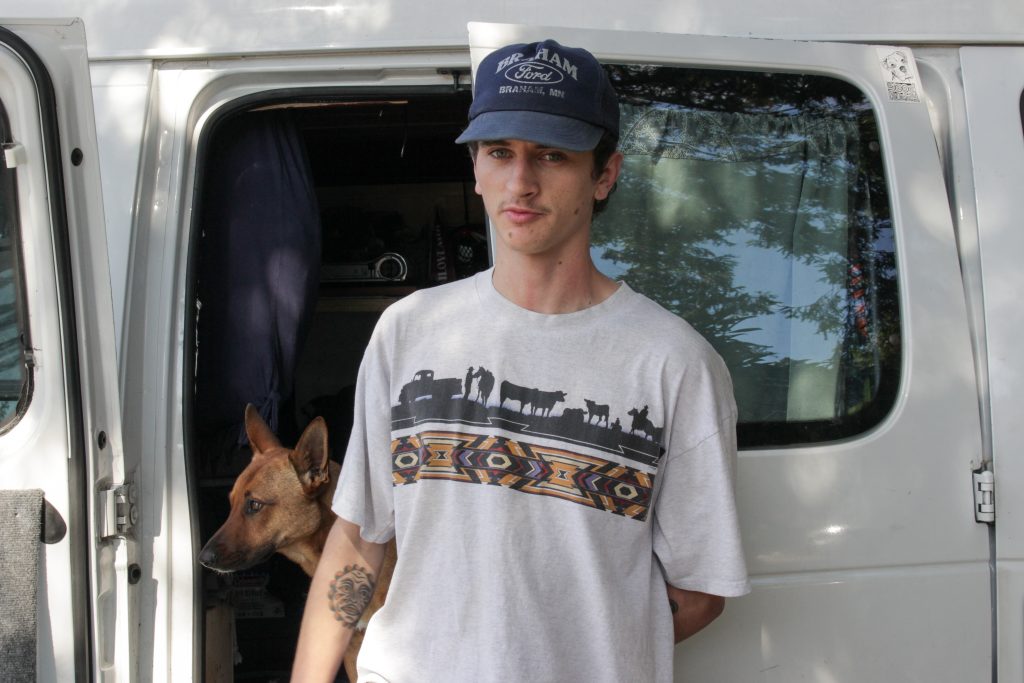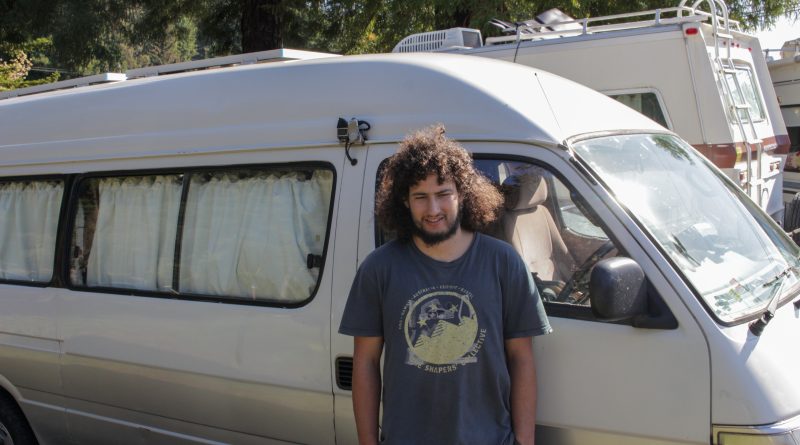University to enforce removal of students living in parking lots
By Peyton Leone with additional reporting by Esmeralda Macias
Students living in Cal Poly Humboldt’s parking lot received a knock on their vehicles and were told by members of administration that they will be enforcing their parking regulation about sleeping overnight in the parking lots. A campus wide email on Oct. 25 said this would be enforced “without exception.”
“They said it would take about two weeks for an email to go out, then they sent it out two hours after we talked to them,” said Jaikyn Russell, a freshman living in his van.
The email said the decision to remove the students came from calls from “…concerned members of the campus community expressing fear and frustration about the situation.”
Students were told in person and by email that they could use emergency on campus housing for up to 21 days, move to RV parks and campsites or enroll in Arcata House Partnership’s safe parking program.
The Alternative Living Club invited students to their regular meeting in Library room 114 on Oct. 27 to discuss the school’s communication. The club was formed by students living in their vehicles so that they could receive mail and advocate for other needed resources.
At the meeting, which was planned before any communication came out, students expressed frustration and talked about solutions. One campus that has worked with students living in their cars is Long Beach City College. The community college started a safe parking program in 2021 to allow students to park overnight. a
“We think it’s important to encourage the school to look at all of those models to help us develop a possible option at Humboldt,” Maddy Montiel, president of the Alternative Living Club.
University Surveillance
Brad Butterfield, another member of the Alternative Living Club, and Montiel have met with multiple administrators about the issue. On Oct. 30 they met with Cris Kozera, interim director of risk management and Krissy Holiday, vice president of student success.
“Chris Kozera told us that they have an accurate tally of about 20 students living in their vehicles,” Butterfield said. “We asked her how the school got to that number and they said they have been looking on the cameras and the parking patrol has also been taking notes of who gets in their vehicles, and then they’ve been writing down license plates and using parking passes to determine the names of the owners of the vehicle.”

Butterfield said that the school’s actions felt “very predatory” and “wrong.”
Students living in their vehicles were told that starting in a week or two the university will send a final email about the enforcement of the regulations. After that they will use the surveillance cameras to determine when students are sleeping in their vehicles.
“They said it will follow the normal parking regulation procedure. Which is apparently that you get five tickets and then after five tickets you get a boot on your wheel then after the boot is on your wheel for an extended period of time then they’ll tow.”
They were told that UPD would be using the campus surveillance system to find students sleeping in their vehicles and ticket them.
Ryan Kelly, a transfer student who lives in his van said that his disabilities make it difficult to be a full time student and work.
Kelly said that he and others were approached by UPD who wanted to know who was living in the parking lot.
“In the beginning of the semester they’d [campus police] come get to know who we are. Because they’re patrolling the campus…they find out what we’re doing, they were all for it. They think it’s awesome,” said Kelly when discussing how UPD had no issue with students living in their vehicles on campus. This was repeated by other students at the Oct. 27 meeting.
“I’m just trying to get a degree,” Kelly said. “I just want to be surrounded by other students, people working to better their lives.”
A petition to stop the removal of unhoused students from campus parking lots was started on Oct. 26 and has 2,910 signatures as of Oct. 31.
El Leñador sent requests for comment to Kozera and Provost Jenn Capps and did not receive a response.



